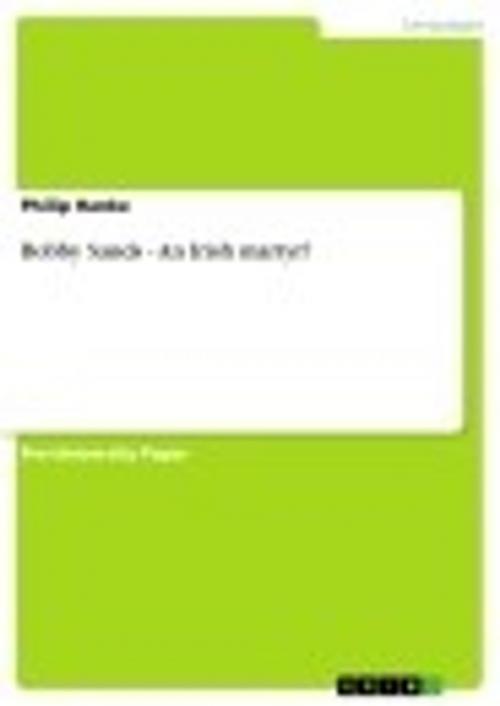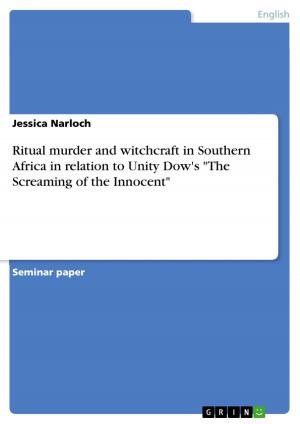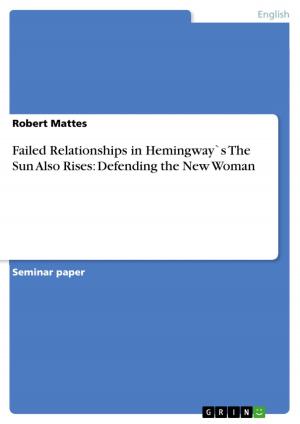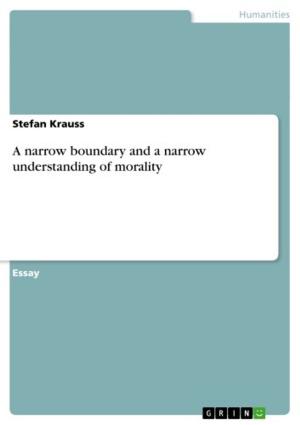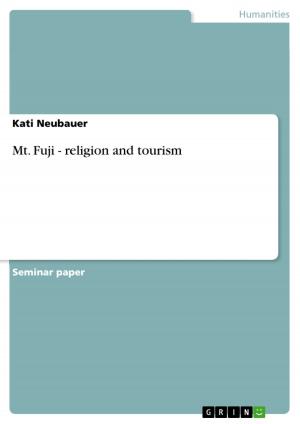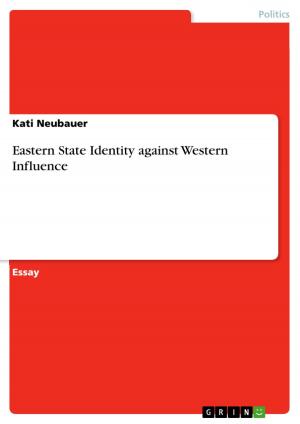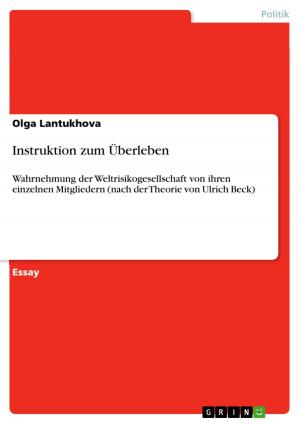| Author: | Philip Hanke | ISBN: | 9783640699957 |
| Publisher: | GRIN Publishing | Publication: | September 8, 2010 |
| Imprint: | GRIN Publishing | Language: | English |
| Author: | Philip Hanke |
| ISBN: | 9783640699957 |
| Publisher: | GRIN Publishing |
| Publication: | September 8, 2010 |
| Imprint: | GRIN Publishing |
| Language: | English |
Pre-University Paper from the year 2009 in the subject English - Applied Geography, grade: 1,0, , language: English, abstract: Bobby Sands was a member of the paramilitary Irish Republican Army who was arrested for the possession of firearms in 1977 and died on hunger strike four years later because Margaret Thatcher refused to force-feed him. As his death in Maze Prison caused massive reactions all over the world, Sands was regarded as one of the most significant members of the IRA. A very popular citation that can be found everywhere on the Internet when you look for Bobby Sands is: 'They have nothing in their whole imperial arsenal that can break the spirit of one Irishman who doesn't want to be broken! ' Although there is no clear evidence that this sentence was said by the IRA-Member Bobby Sands or if this quote is just a legend attached to the famous hunger striker after his death, it sums up his attitude towards Great Britain and Margaret Thatcher in a short and provocative way. History has shown that the answer to the question who is a heroic fighter for freedom and who is a terrorist depends on the point of view of the person judging the actions of another person - the Taliban were heroes for the USA when they fought the Soviet Union and even Saddam Hussein was seen as the hero of the Iran-Iraq War. The same thing can be said about the Irish Republican Army and their members because many Irish see or saw them as heroes fighting for the freedom of their home country whereas the English saw them as terrorists attacking the integrity of the United Kingdom. On the following pages I will try to outline who Bobby Sands was, what ideas he fought and died for and if he can be seen as an 'Irish Martyr' today. I will start with the historical background to show where the English-Irish conflict has its roots and what role the IRA and especially Bobby Sands played in that tragedy. To do that I will examine the life of Bobby Sands to see what made a young Irishman join the IRA, what he was arrested for and how he died under the administration of Margaret Thatcher.
Pre-University Paper from the year 2009 in the subject English - Applied Geography, grade: 1,0, , language: English, abstract: Bobby Sands was a member of the paramilitary Irish Republican Army who was arrested for the possession of firearms in 1977 and died on hunger strike four years later because Margaret Thatcher refused to force-feed him. As his death in Maze Prison caused massive reactions all over the world, Sands was regarded as one of the most significant members of the IRA. A very popular citation that can be found everywhere on the Internet when you look for Bobby Sands is: 'They have nothing in their whole imperial arsenal that can break the spirit of one Irishman who doesn't want to be broken! ' Although there is no clear evidence that this sentence was said by the IRA-Member Bobby Sands or if this quote is just a legend attached to the famous hunger striker after his death, it sums up his attitude towards Great Britain and Margaret Thatcher in a short and provocative way. History has shown that the answer to the question who is a heroic fighter for freedom and who is a terrorist depends on the point of view of the person judging the actions of another person - the Taliban were heroes for the USA when they fought the Soviet Union and even Saddam Hussein was seen as the hero of the Iran-Iraq War. The same thing can be said about the Irish Republican Army and their members because many Irish see or saw them as heroes fighting for the freedom of their home country whereas the English saw them as terrorists attacking the integrity of the United Kingdom. On the following pages I will try to outline who Bobby Sands was, what ideas he fought and died for and if he can be seen as an 'Irish Martyr' today. I will start with the historical background to show where the English-Irish conflict has its roots and what role the IRA and especially Bobby Sands played in that tragedy. To do that I will examine the life of Bobby Sands to see what made a young Irishman join the IRA, what he was arrested for and how he died under the administration of Margaret Thatcher.
